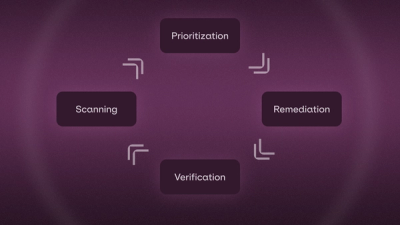Software development has changed significantly over the years. Modern applications often rely heavily on open source components and third-party libraries, making software composition analysis (SCA) increasingly important. SCA tools are supposed to help developers identify and manage the open source components in their code, and, ideally, detect and mitigate vulnerabilities. Yet, despite their promise, many developers find that these tools often fall short. Let's explore why.
They're Reactive, Not Proactive#
The traditional approach of SCA tools is largely reactive. They look at the packages in your application and compare them to a list of known vulnerabilities or CVEs (Common Vulnerabilities and Exposures) in public databases like the National Vulnerability Database (NVD). If there's a match, the tool will alert you to the vulnerability.
While this can be helpful for managing known vulnerabilities, it's an approach that is inherently flawed. It fails to catch zero-day exploits or emerging threats. Essentially, these tools are playing catch up with cybercriminals, waiting for a vulnerability to be exploited and then added to the database before they can take action. In a fast-moving digital landscape, this lag can be costly.
They're Not Built for Supply Chain Attacks#
SCA tools were not built with supply chain attacks in mind. Supply chain attacks are sophisticated, targeted attacks where the adversary infiltrates the software supply chain to tamper with packages or libraries that are then incorporated into applications. This tactic is becoming increasingly common, as seen in the SolarWinds attack and other high-profile incidents.
Traditional SCA tools are not equipped to deal with these advanced threats. They lack the ability to deeply analyze the behavior of dependencies or the ability to spot unusual activity. They cannot provide real-time protection against an active supply chain attack, leaving organizations exposed.
Noise Over Substance#
Many SCA tools generate a massive amount of alerts, often overwhelming developers with a high volume of "false positives". Developers don't have the time or expertise to sift through hundreds of potential issues to find the ones that are real threats. This leads to alert fatigue, where developers may start to ignore alerts altogether because of their low signal-to-noise ratio.
The Solution#
The above issues highlight the need for a new generation of SCA tools, ones that are built with the modern development landscape in mind. That's where Socket comes in.
Socket is designed to address the limitations of traditional SCA tools. It uses deep package inspection, also known as "content-based analysis", to understand the behavior of dependencies, allowing it to spot potential supply chain attacks. Unlike other SCA tools, it can detect and block these threats in real time, providing a proactive solution to supply chain security.
Furthermore, Socket is built by developers, for developers, with a focus on usability. It generates actionable alerts rather than a flood of noise, allowing developers to focus on real threats and not waste time on false positives.
Software composition analysis is a crucial part of modern development, but the tools we use need to keep pace with the evolving threat landscape. Socket is part of a new generation of SCA tools that are ready to meet these challenges.
Want to defend your organization from bad dependencies, malware, and supply chain attacks? Install the Socket Security GitHub app for free and get protected today! Or if you prefer, you may book a demo to learn more!




